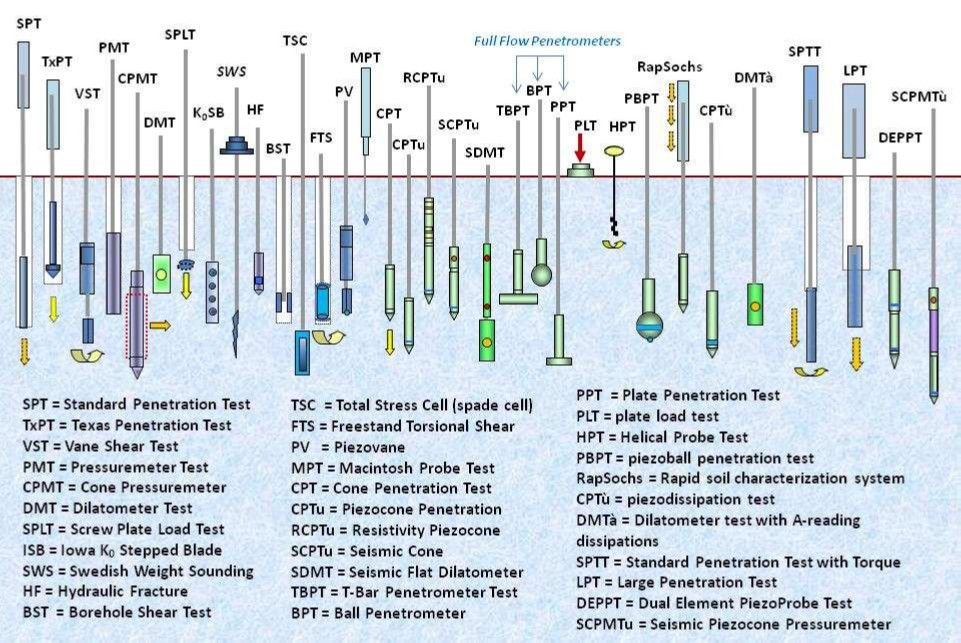Field Tests
What are field tests?
In the context of geotechnical testing, field tests are tests conducted on soil or rock materials in their natural or in situ conditions at the construction site or in the field. These tests are carried out to determine the engineering properties of the materials, such as their strength, stiffness, permeability, and deformation characteristics.
Field tests are important as they provide a more accurate representation of the actual site conditions and behavior of the soil or rock than laboratory tests, which are typically conducted on samples that are removed from the site and brought to the laboratory. The results of field tests are used to assess the feasibility and safety of construction projects, such as the design of foundations, retaining structures, slopes, and excavations.
Some common examples of field tests in geotechnical engineering include Standard Penetration Tests (SPT), Cone Penetration Tests (CPT), Plate Load Tests, Pressuremeter Tests, and Soak Away Tests that assess the permeability of water on site. These tests are conducted by drilling or excavating holes at the construction site, inserting test equipment into the holes, and measuring the response of the materials to the applied load or pressure.
Examples of field tests and field test equipment
Dr. Paul Mayne has created a comprehensive graphic summarizing various geotechnical field tests. When properly executed and combined with laboratory data, field tests can provide excellent insight into soil properties, strength, and behavior.
SPT = Standard Penetration Test
TxPT = Texas Penetration Test
VST = Vane Shear Test
MPT = Pressuremeter Test
CPMT = Cone Pressuremeter
DMT = Dilatometer Test
SPLT = Screw Plate Load Test
ISB = Iowa Stepped Blade
SWS = Swedish Weight Sounding
HF = Hydraulic Fracture
BST = Borehole Shear Test
TSC = Total Stress Cell (spade cell)
FTS = Freestand Torsional Shear
PV = Piezovane
MPT = Macintosh Probe Test
CPT = Cone Penetration Test
CPTu = Piezocone Penetration
RCPTu = Resistivity Piezocone
SCPTu = Seismic Cone
SDMT = Seismic Flat Dilatometer
TBPT = T-bar Penetrometer Test
BPT = Ball Penetrometer Test
PPT = Plate Penetration Test
PLT = Plate Load Test
HPT = Helical Probe Test
PBPT = Piezoball Penetration Test
RapSochs = Rapid Soil Characterization System
CPTu = Piezodissipation Test
DMTa = Dilatometer test with A-reading dissipations
SPTT = Standard Penetration Test with Torque
LPT = Large Penetration Test
DEPPT = Dual Element Piezoprobe Test
